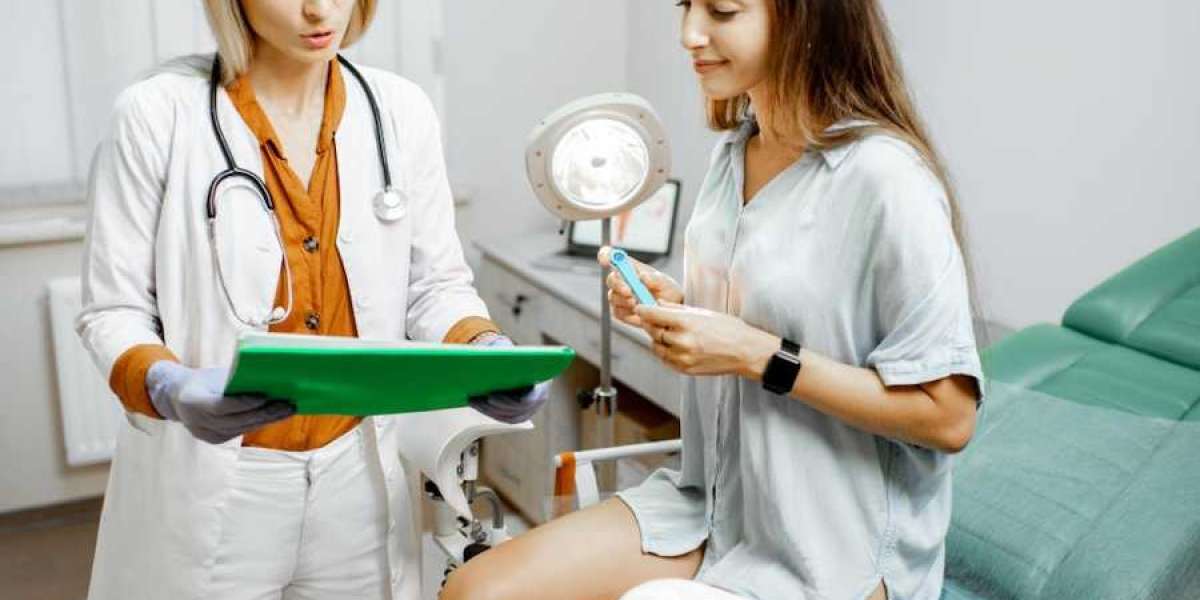Menstrual cramps can be a frustrating and painful part of the monthly cycle. While painkillers may provide temporary relief, many people seek alternative methods to manage their discomfort without relying on medication. Fortunately, General gynecology أمراض النساء العامة )research supports several natural, safe, and effective ways to reduce menstrual pain.
Understanding what causes cramps and how to soothe them using lifestyle changes, natural remedies, and preventive care can significantly improve your monthly experience.
What Causes Menstrual Cramps?
Menstrual cramps, also known as dysmenorrhea, are caused by the contraction of the uterus as it sheds its lining. These contractions are triggered by hormone-like substances called prostaglandins. Higher levels of prostaglandins are linked to more intense cramps, nausea, and fatigue.
While some discomfort is normal, ongoing or severe cramping may point to underlying issues that general gynecology can help diagnose, such as endometriosis or fibroids.
Natural Ways to Reduce Menstrual Cramps
You don’t have to suffer in silence or depend solely on medication. Below are several natural strategies that can help ease menstrual pain effectively.
Apply Heat
One of the simplest and most effective ways to relieve cramps is by using a heating pad or hot water bottle on the lower abdomen. Heat helps relax the uterine muscles and improve blood flow, offering fast relief.
Try soaking in a warm bath or using adhesive heat patches if you're on the go. Studies show that heat can be just as effective as over-the-counter pain relief in many cases.
Practice Gentle Exercise
It may seem counterintuitive, but light physical activity can actually reduce cramping. Movement boosts circulation and releases endorphins, which act as natural painkillers.
Consider low-impact options such as:
Walking
Yoga
Stretching
Swimming
Even a short walk during your period can make a difference in how you feel.
Stay Hydrated
Drinking enough water may help prevent bloating, which worsens cramps. Aim for 6–8 glasses a day, and include herbal teas like chamomile or peppermint for added anti-inflammatory benefits.
Warm liquids can help relax your muscles and calm the nervous system, reducing pain naturally.
Lifestyle Adjustments That Make a Difference
General gynecology emphasizes the importance of preventive care when it comes to menstrual health. Simple lifestyle changes can lead to long-term relief.
Eat an Anti-Inflammatory Diet
Some foods can increase inflammation, while others help reduce it. A diet rich in whole grains, fruits, vegetables, nuts, and omega-3 fatty acids may decrease the severity of cramps over time.
Avoid processed foods, caffeine, alcohol, and excess sugar during your period, as they may aggravate cramping.
Get Enough Sleep
Sleep is essential for hormone regulation and pain management. Aim for 7–9 hours of restful sleep, especially in the days leading up to and during your period.
Creating a calming bedtime routine and limiting screen time can improve sleep quality and ease menstrual discomfort.
Manage Stress
Stress triggers the release of cortisol, which can disrupt hormonal balance and make cramps worse. Consider trying:
Meditation
Deep breathing exercises
Journaling
Spending time in nature
Even a few minutes of daily mindfulness can significantly impact how your body responds to menstrual pain.
When to Seek Help
If your cramps interfere with your daily life or persist despite using these strategies, it may be time to seek general gynecology support. Severe menstrual pain can sometimes be a symptom of conditions like:
Endometriosis
Uterine fibroids
Pelvic inflammatory disease (PID)
Adenomyosis
Getting a proper evaluation ensures that any underlying issues are addressed, and you receive the right care.
Frequently Asked Questions
Can diet really help reduce menstrual cramps?
Yes. Anti-inflammatory foods like leafy greens, berries, and fatty fish can help lower prostaglandin levels and reduce cramping over time.
Is it safe to exercise during my period?
Absolutely. Gentle movement can actually help relieve pain and improve mood.
How long should cramps last?
Mild to moderate cramps typically last one to three days. If they continue longer or worsen, consult a specialist.
Are herbal remedies effective?
Some herbal teas, such as ginger, turmeric, and chamomile, have shown promise in relieving menstrual pain. Always use them in moderation.
Final Thoughts:
Reducing menstrual cramps without painkillers is entirely possible through consistent self-care and lifestyle adjustments.General gynecology أمراض النساء العامة ) From using heat and staying active to making dietary changes and managing stress, these natural strategies support better cycle health and overall well-being.




